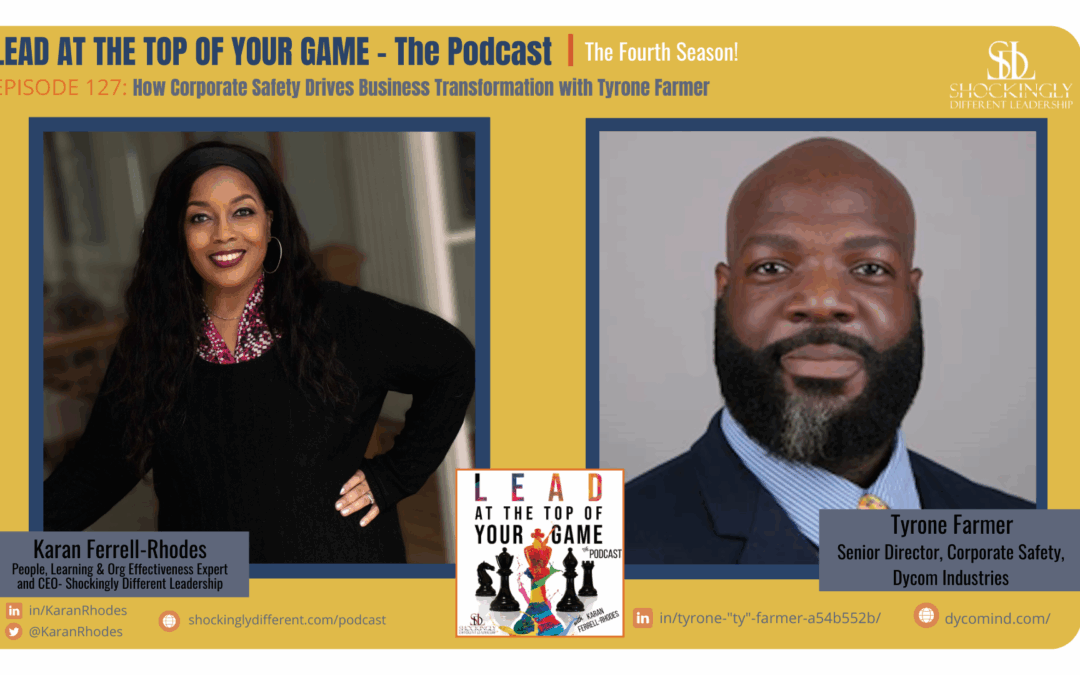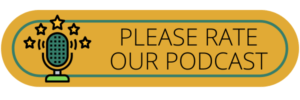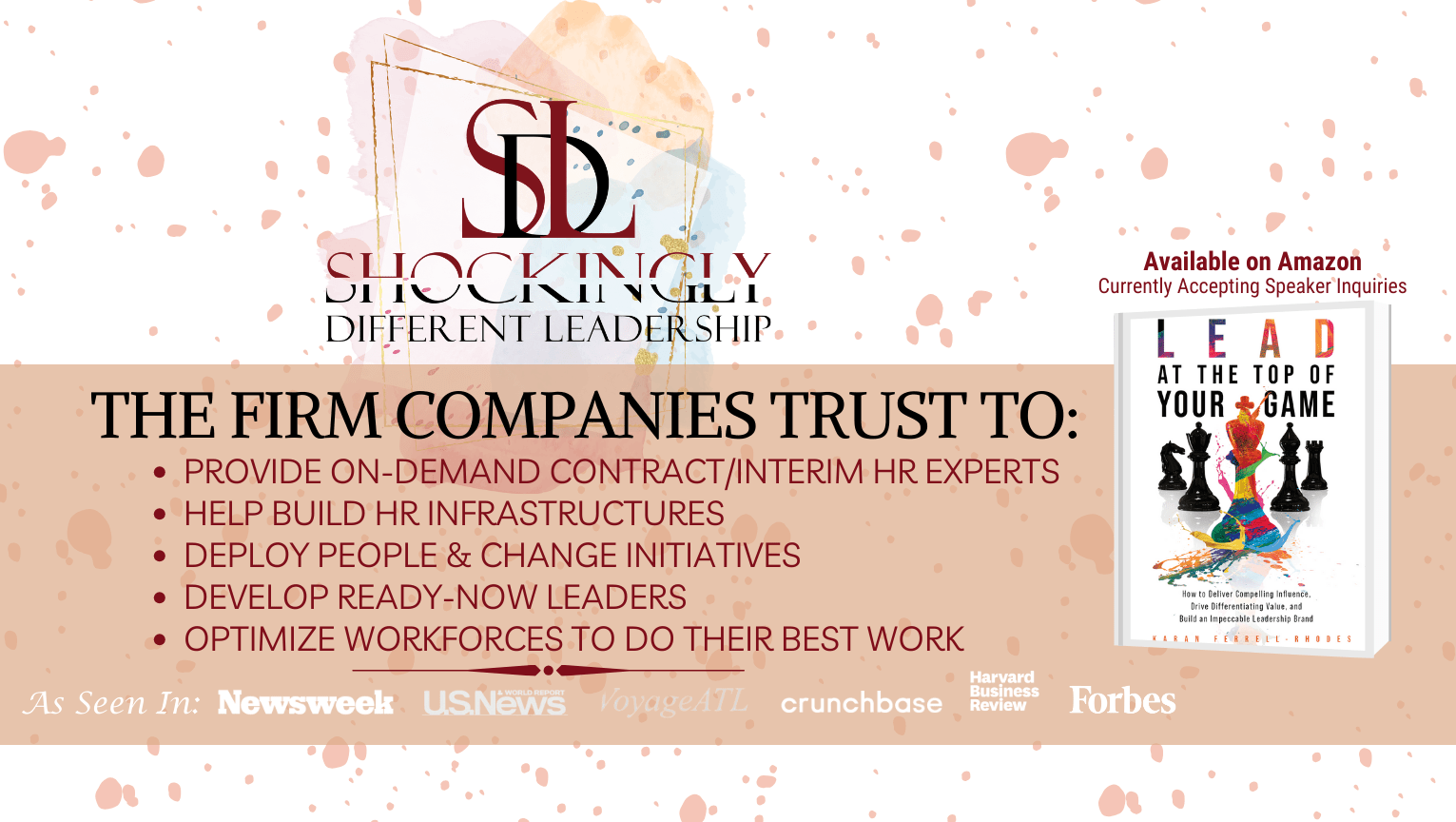IN THIS EPISODE, KARAN FERRELL-RHODES INTERVIEWS TYRONE FARMER
Tyrone Farmer shares insights on building a strong safety culture in the telecom construction industry. He highlights the importance of aligning safety leadership with business strategy and decision-making.
Tyrone discusses building trust across departments, the growing role of AI in safety, and the five principles of human and organizational performance. He also offers guidance to early-career safety professionals, emphasizing the importance of leadership development and executive presence in safety roles.
Tyrone Farmer is the Senior Director of Corporate Safety at Dycom Industries Inc. Dycom’s mission is to connect underserved communities, emphasizing that safety is a key driver of operational excellence.
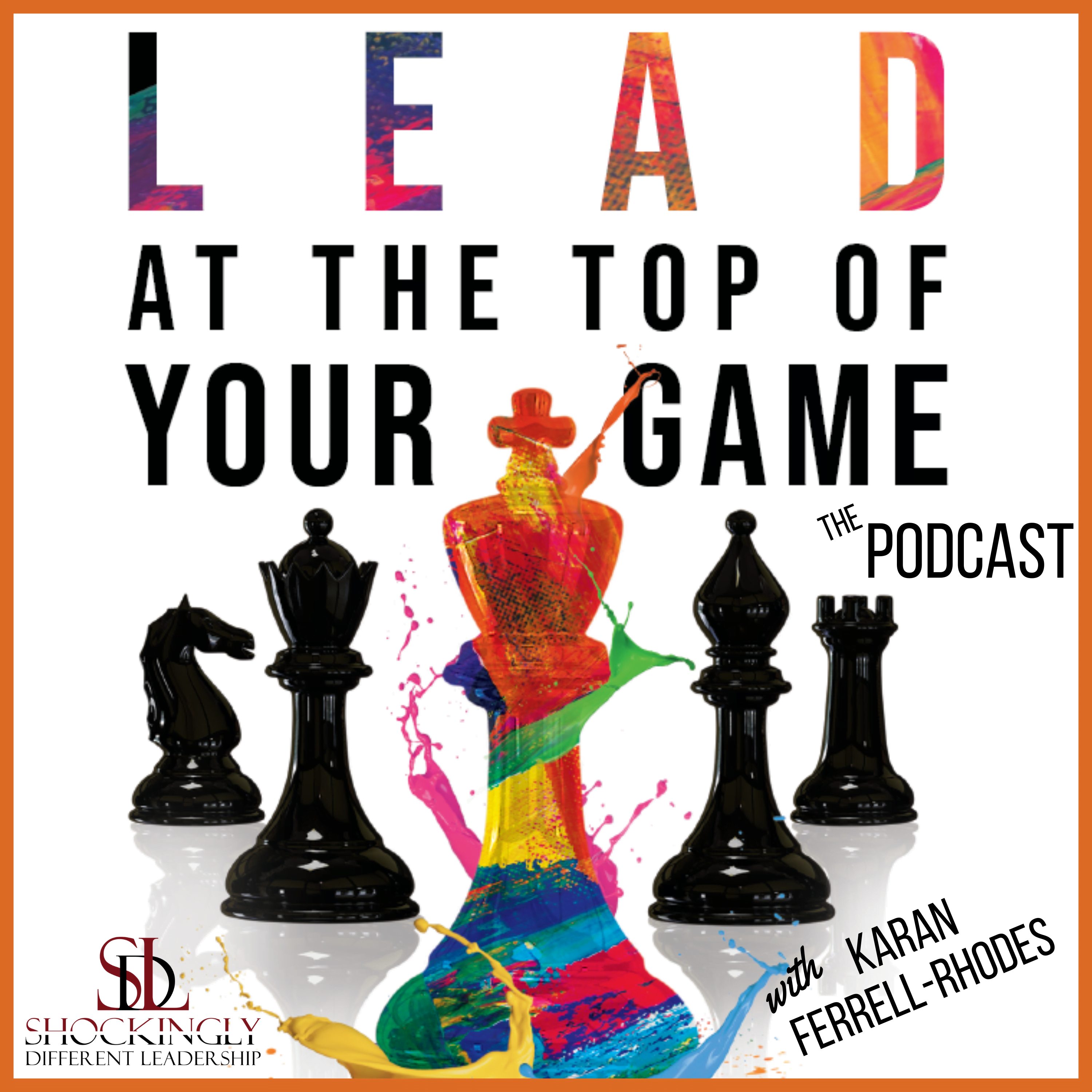
Posted by
SDL Media Team
Rather view our video podcast?

WHAT TO LISTEN FOR:
- What is the mission of Dycom Industries?
- Why is safety considered essential for business success?
- How can safety leaders build trust with other leaders in the organization?
- What are the five principles of human and organizational performance?
- How can artificial intelligence help improve safety processes?
- Why do safety leaders need both technology and people skills?
- How does understanding the business help safety professionals communicate effectively?
“Building the right relations is the upfront investment to getting an ROI.”
FEATURED TIMESTAMPS:
[02:27] Tyrone’s Personal Life
[05:36] Professional Career Journey
[09:38] Dycom Industries and Its Mission
[12:27] Safety as a Business Imperative
[17:05] Signature Segment: Tyrone’s entry into the LATTOYG Playbook: Building Relationships and Trust
[19:03] Trends in Safety and AI
[24:11] Advice for Early Career Safety Professionals
[25:59] Signature Segment: Tyrone’s LATTOYG Tactic of Choice: Leading with Executive Presence
[29:26] Contact Information

ABOUT TYRONE FARMER
Tyrone Farmer is the Senior Director of Corporate Safety at Dycom Industries Inc., with over 20 years of experience in leadership roles across safety, operations, and business transformation. He has successfully led cultural shifts within large organizations, driving the integration of safety as a core business driver.
Tyrone’s expertise spans aligning people, processes, and strategies to achieve operational excellence and foster collaboration across diverse teams. Passionate about developing future leaders, he shares valuable insights on leadership, organizational growth, and transforming business functions to enhance overall performance and company culture.
LINKS FOR TYRONE:
- Website: dycomind.com/
- LinkedIn:https://www.linkedin.com/in/tyrone
ADDITIONAL RESOURCES FOR YOU:


Episode Sponsor
SDL is the go-to firm companies trust when needing to:
- supplement their in-house HR teams with contract or interim HR experts
- implement leadership development programs that demonstrate an immediate ROI and impact on the business

Episode 127 | How Corporate Safety Drives Business Transformation with Tyrone Farmer
Tyrone Farmer 00:00
Safety is a leading indicator to operational excellence and operational success, because the one thing that everyone can agree on, we all want to go home safely. We all want to make money. We all want to be happy. And part of that, making money and being happy, is making sure you go home. Wash, rinse and repeat and start all over again, go to work and trust the environment in which you work in.
Voiceover 00:05
Welcome to the “Lead at the Top of Your Game” podcast, where we equip you to more effectively lead your seat at any employer, business, or industry in which you choose to play. Each week, we help you sharpen your leadership acumen by cracking open the playbooks of dynamic leaders who are doing big things in their professional endeavors. And now, your host, leadership tactics, and organizational development expert, Karan Ferrell-Rhodes.
Karan Rhodes 00:36
Hello again, my superstars. This is Karan, and welcome to another episode of the lead at the top of your game podcast, I am just over the moon and thrilled to have on today’s show. Tyron farmer, who is a Senior Director of Corporate safety at Dycom industries incorporated and Dycom is a leading provider of specialty contracting services to the telecommunications infrastructure and utilities industries throughout the US. And I’m so excited to have Ty on the show because of his passion for ensuring that safety leaders have a seat at the decision making table to help direct operations at organizations. And so welcome to the podcast, Ty!
Tyrone Farmer 01:19
Thanks for having me here, I’m very happy to be here.
Karan Rhodes 01:23
We are absolutely thrilled to have you, and I think that you, out of the hundreds of interviews, I think you are the first in the corporate safety realm. So I’m very honored to you know, get your perspective, and we had a chance to talk in our pre talk about how operations and safety really do help drive the success of organizations. So I can’t wait to delve further into that. But before I do, you know we always love to learn just a tad bit about our guests. So for just as much as you feel comfortable, would you mind giving us a sneak peek into your life outside of work?
Tyrone Farmer 01:59
Yeah, well, I’m gonna sound like the Wheel of Fortune. I’m a happy father of three kids and a lovely wife. My wife’s name is Stephanie. Have three kids, Sky Bryce and Brent. So the thing that a lot of people can probably resonate with is we’re at the edge of being empty nesters. So that’s it. My wife and I are getting ready to walk into a new chapter of our lives, and that chapter is now that we don’t have the kids to worry about all the time. We can now just have fun with life. And so I’m an avid gym goer. I love outside and I’m a My hobby is people watching. So whenever we go on vacations, I love to just sit in a crowded area and just watch the people walk by and put my own story behind who these individuals are. So that’s a little bit about me. It’s really a common story, because I know a lot of people who love people watching and do that for days and weeks and weeks and weeks. So it’s a little bit about me
Karan Rhodes 02:58
That is awesome. Thank you for sharing. And you know, it wasn’t until now, until you said that, that we have that in common, too. I have been an avid people watcher my entire life. It was one of the reasons I went into initially industrial organizational psychology, because I really wanted to understand the people in the workplace and what drives them, their thinking, their behaviors. And then that has expanded just to be a curiosity. So we definitely have that in common. I love to do it, not only on vacations, but traveling anywhere if you’re sitting in the doctor’s office. I love to observe folks. So that’s something we’re gonna have to have a conversation about. That is amazing, and your family sounds amazing, and your family sounds amazing. And the last thing I will say, as a recent empty nester of myself with my husband, there is light at the end of the tunnel. And I’ll say it’s so much fun. Well, it’s bad for the first few weeks, but then once you kind of get acclimated, your time is freed up to be your own. And we’ve been having a blast.
Tyrone Farmer 04:01
Yeah, we’re looking forward to it. Our kids are local, so we have these episodes where at any given time, my son will walk back in the house and go straight to the refrigerator.
Karan Rhodes 04:11
My daughter’s eight minutes away. I told her, go anywhere in the world she wanted to go. I mean literally, because she’s traveled with me, because we do a lot of global travel, she’s selected a place eight minutes away from the house. So yeah.
Tyrone Farmer 04:25
Well, I chalk that up too. We did something right that they want to stay in the area.
Karan Rhodes 04:31
She does love to travel, but she’s, I guess, a old soul, and loves to be near family as well. So yeah, she stayed nearby. And I must say, it does something for my peace of mind, just to make sure she’s okay. But then, like I said, it’s great to have your own space again as well. Absolutely right, all right. Well, without further ado, let’s go ahead and kind of dive into our conversation today. And I’d love for you to start if you can tie with just a high level of some. Major milestones in your professional career, and then what ended up landing you to be the Senior Director of Corporate safety at Dycom.
Tyrone Farmer 05:08
Okay, well, I have almost 30 years of experience in this safety game that we call my once I graduated from college, I went to United States Army, and I spent eight years in the United States Army, where I was doing safety and not even realize that was what I was doing. As a commissioned officer, your job was to make sure that your soldiers were taken care of. And so through that leadership program, I will call it, and through that experience, I started understanding what safety was without people calling it safety. At the end of my eight years, a lot of veterans will tell you, if you’re going to spend 10 years, you might as well retire, and I knew I didn’t want to retire in the military, so I transitioned out after eight years, and I had opportunity to transition into General Electric and I transitioned via their junior officer Leadership Program, where GE capitalized on those leadership skills that we learned in the military as officers. So during that time, I spent 13 years with GE, going progressing my career, going from a regional safety leader to leading, you know, different organizations within GE, but at a certain time of your life, the whole traveling internationally is sexy when you’re young, but older you have kids, you realize that you need a little bit more stability in your life and be a little bit more stationary. So I transitioned out of GE into a smaller company called Power Grid engineering, and I was literally employee 151 so going from a large company, going from the military to a large company, like GE, then to a small company, I had a lot of anxiety, but I was hired to start their safety program and start their safety culture, and I had a lot of experience doing that through my past experience. So that company grew from 150 employees to 1500 employees in a five year period. So you can imagine there’s a lot of change that occurs, and being able to establish a strong safety culture that can bob and weave with the changes of reorganizing and growth. I was able to achieve that successfully, and then one day, when you’re least expected, you receive a phone call from a recruiter, and they’re saying, I like your career path. What do you think about this? And at the time, I said, I was like, I’m not looking for job. I’m very happy. However, I will entertain the conversation. And you know how to go sometimes you be careful what you ask for. I entertain the conversation. And I was really amazed at what Dycom industries had done up until the point in which I joined the organization. And their mission was clear, we want to hire a city leader who can help us go into the new chapter of the enterprise. And again, I’ve been with a larger organization, but never led a larger organization, Dycom industries, 16,000 employees, 37 subsidiaries, 635, different offices, 14,000 vehicles. That’s a large organization. That’s huge. So, you know, I walked in and said, this is my opportunity to really if I say I can do it, this is my opportunity to do it, and I accepted the challenge. They accepted me as that leader to help Dycom industries transition into a new way of thinking when it comes to safety and how safety is a critical part of the operation, and they need a leader to help integrate safety into the operation. And so here I am, three years later, I’m very happy with Dycom. I’m happy with the progress we’ve made, and looking forward to another 1015, years with Dycom, if I can make it happen,
Karan Rhodes 08:49
If you can muster it, I love that, and I probably murdered it. But can you remind the listeners exactly what Dycom does?
Tyrone Farmer 09:01
Dycom industries is the leading telecom construction organization within the United States. We operate in all 50 states of the United States. And our mission, we like to say, We are the people that Connect America. So our mission is really to connect those underserved communities in the US and make sure that everyone has internet access, as we experienced during COVID. You realize how important having that virtual access to internet access is. You also realize what communities really don’t have it. So our mission as a organization of 16,000 employees is make sure that every person, every household in the United States, has that capability, that basic capability now, of internet access,
Karan Rhodes 09:48
Absolutely and with the type of services that you all offer your teams of and I don’t know if you call them technicians or associates, or what the technical term. Is there, but your people, or the company’s people, a lot of them, are probably out in the field, you know, servicing clients, and they come across all kinds of safety hazards, and if you don’t have great processes in place, there’s a high risk of injury or accidents or, you know, you name it, right?
Tyrone Farmer 10:22
That’s exactly right. You really got to think about it like this, when you’re sitting at home, and a lot of us work remotely now work virtually, look out your window and you see a technician of some sort walking around your house because they’re taking care of whether they’re parking, marking utility lines on the ground, whether you have an appointment for the cable guy to come, and he or she is outside actually doing their installation. We have literally crews of onesies, twosies, threes, four, fives and six all over the country, and you never know what community you’re in and what environment you in, and all the different hazards that are associated with those different environments, from dog bites to cold weather to the heat to these exactly to mental health and even some of the individuals who live in various communities, these are all things that we have to protect our people against to make sure that everyone goes home safely.
Karan Rhodes 11:21
Yeah, I love that. It’s been my experience that the corporate safety functions are considered a great supplemental operational department of a company versus a strategic one, and I think that’s one of the biggest misconceptions that are out there, and so I’d love for you to share with the audience, from a corporate safety perspective, why it is such a business imperative to directly have whoever is your lead safety leader to be directly connected to the business strategy the VP levels and C suites.
Tyrone Farmer 12:00
Exactly. I’ll first start by saying that, and I believe this throughout my entire career, but my job is to sure that others understand this. Safety is a leading indicator to operational excellence and operational success, because the one thing that everyone can agree on, we all want to go home safely. We all want to make money. We all want to be happy. And part of that making money and being happy is making sure you go home and wash, rinse and repeat and start all over again, go to work and trust the environment in which you work in, if you work in a an environment that has a crappy safety program, you can probably guarantee there are a lot of other that company is not making money, that company is barely surviving. But if you go into a company that has an excellent safety program, that’s the leading indicator to say they probably got an excellent quality program, they probably could have people who are very happy to work there because they trust the company, the leaders and the environment, that those leaders and the environment is going to just keep them safe. And if you have happy people working in your company, you have productive people working in your company, and then that productive audience, they’re trying to find new ideas. They’re trying to find new ways to make more money and to really drive that success, because everyone wants to be on the winning team. So yeah, I start, you know, I’ll repeat, safety is a leading indicator to operational excellence, because, again, there is no dispute. Everyone wants to be safe and everyone wants to live another day to continue this life that we’re living. So as I said, Now, it seems like duh. It’s that’s easy to understand. But when you’re talking to leaders who they’re only focused on the dollar, yeah, it may. It’s an oversight often, yeah, and because, and this is the deal, safe. Anything as a safety leader, I say is gonna cost you time, is gonna cost you money, and I know this, right? And so with that said, I’m asking for a lot of upfront investment, and for me, as a leader, to ask for that up from investment, you have to trust me that I’m asking for a reason, and I’m asking because I understand the business as a safety leader, and i i I can help the operation leaders navigate implementing upfront investment so that they can get that return on that investment later on. So you know a safety leader to be influential, you have to talk in the language of operations leader, and that late sometimes that language is dollars and cents and so understanding the value we bring to the table to keep our people safe, and sometimes you have to translate that passionate personal story, sometimes in the language of dollars and cents, so that operations leader can connect with the story, and then you can have a productive conversation about how we’re going to make certain things happen so as a safety. Leader. You got to be influential as a safety leader. You have to understand the business so you can translate the language in the language of the audience and but most importantly, you have to be committed to what we do as safety leaders. We are about the people. I can’t I’m not going to put a price on anybody’s health, a price on anybody’s life, right? But I have to understand how to navigate those conversations so that the right people can hear the right story, so that ultimately we can make the right decisions.
Karan Rhodes 15:31
I love what you said there, because people’s well being overall is the most important. And I always joke with the C suite that they’re not doing as much as they should regarding their human capital and their human capital strategies when this is one of the largest line items on their PNLs. So they should be doing everything they can to best optimize I consider it an asset versus a liability, but they should be doing everything they can to help get a stronger ROI on the back end, and because you’ve been in this function for so long, I’m curious, how do you accelerate buy in of decision makers around your safety initiatives? Because it’s easy to say you got to do that and make that connection so they can tie it back into the business. But in reality, and I know it depends upon each person and what they prioritize, as far as what would be a win win for them. But do you have any advice for fellow corporate safety professionals on how to accelerate the buy in of those that you need in order to get the things you need to do for your programs?
Tyrone Farmer 16:37
It goes back to that upfront investment on the leader’s end, building the right relationship is that upfront investment being able to create an environment where I can pick up the phone and call Karan and say, Hey, Karan, how you doing? How was your weekend? And after you go through the pleasantries, but then say, we have an issue, and I need your help so understanding how to build truthful, trustful relationships and understanding where you can help the other person. Sometimes you got to make a lot of deposits to make a withdrawal. And I teach my leaders all the time. This is not in your swim lane. First of all, you need to know more about your business, so go ahead and help the IT director out with this project. This is not in your swim lane, but you. But it will be valuable to you if you can help the business. Go sit down in the IT staff meeting, and voice your concerns about it and it issues. And then, not only voice your concerns, give your solutions so you see where I’m going. It’s like I’m telling my team, make the deposits, build the relationships, build the level of trust. Because if I trust you, I’m gonna listen to you. If I don’t know you, I really don’t want to hear anything you have to say. So for a safety leader to be influential, for a safety leader to actually have a productive conversation, because again, everything I say is gonna cost you money. It’s gonna cost you time, then I need to build those relationships with all the leaders in the organization, because at one time or another, I’m going to need that leader to help me out. So through that relationship building, let me help out as many people as possible, so they’ll be happy to help me out when I need that, the help or when I need that withdrawal.
Karan Rhodes 18:21
Definitely. So Ty, what are you seeing as some major trends that are going on in the safety world? And what do you think is around the corner in the next, like 12 to 18 months that that companies need to be mindful of?
Tyrone Farmer 18:35
The trend that I’m seeing going on in safety world is is probably falls into two categories. What really is one category. We have this thing, this philosophy called um, innocent movement called human and organizational performance. And yet again, I’m sorry, human and organizational performance. Okay, this is a movement that’s going on within the safety arena. And it’s not just safety, but safety. We’ve been the catalyst to get other departments and other functions to understand it human and organizational performance is around five principles, and I hope I don’t get these five principles messed up. Number one, people make mistakes. If you know that people gonna make mistakes, Mr. Or Mrs. Leader, what are you gonna do to make that process as foolproof as possible when you know that they’re gonna make mistakes. Principle number two, blame fixes. Nothing. You can blame Ty Farmer all day long, but if somebody else has the same incident or the same accident, then is it really right to blame Ty Farmer, or should we step back and look at the broader perspective in the process? Because if Tom made the mistake, and I switched Ty out of that scenario and put Karan in that scenario, will Karan make the same mistake a lot of times? The answer is yes, and so blaming the person is not going to fix anything. Learning is vital. If you have an incident, or if you have a success, start asking, Why? Why were we successful? What did we do right that we need to repeat? Or what? Did we do wrong that we need to make sure we don’t do it yet. People talk about the incidents and why did it happen, but very few times do we look at the successes and talk about why we were successful, and how can we build that or institutionalize that into our organization? Another principle is how a leader responds matters if a person has an incident or accident or makes a mistake, and the first thing you say is, oh, I’m sorry to hear that is everyone okay. Okay, everyone’s okay. So let’s sit down and talk about what happened and how we can make sure this doesn’t happen again. If you are constantly responding like that, the leader opens the door for people to be open, honest and trust that leader. However, if the leader responds in in a fashion of how in the world, did that person do that? I’ve never seen that before, that person and the people around that person, they’re going to shut down, and they’re never going to really open up to that leader. And the last principle on that is around continuous improvement, and you have to always look for the gaps, look for the mistakes, look for the issues, so that you can continually improve. So those principles that I just listed out, it’s nothing new. If you’ve been a leader for a long time, it’s really leadership 101, Karan, however, we’re trying to package it and give it a sexy package, so that people will understand that if I really hold true to these five principles, we can really make some things happen. And if you think about those five principles, those that’s not just safety, that’s in the quality arena, that’s in the HR arena, that’s in the finance arena, every department, every function. If you follow those rules and you’re trying to continually improve and have leaders who are empathetic, then that’s how the organization gets better. So that’s the true movement that’s going on, or true trend that’s going on in the safety world right now. I would say another trend is this? Ai thing? Yeah, definitely understanding how we can capitalize on this artificial intelligence that’s out there to help us get one step further, a little bit quicker than what we’re doing right now. I tell my leaders this all the time, the one thing AI can give us all the data in the world, but the one thing that keeps us in our role, AI cannot personalize
Karan Rhodes 22:22
That’s right.
Tyrone Farmer 22:23
That information.
Karan Rhodes 22:24
Not yet anyway. And I tell people that are nervous about their jobs going away to AI, I said, you know, I think you’re a little premature in general, it’s not about AI taking your jobs. It’s about you being able to manage AI. So you need to become more astute in the context that AI is impacting your job function or industry, so that at least you’ll have the skills to be able to contribute the way that your company is adopting or infusing AI into their processes.
Tyrone Farmer 22:57
Exactly. And we all need to be computer savvy. We all need to be technology savvy, but we also need to be people savvy, and that link between technology and the audience or our people out in the field, there still needs to be a proficient person who can help translate. And I tell my team, that’s what we do. We take all that data and we translate it in a form and fashion that our people in the field can understand it? We don’t make it hard. We don’t It’s not rocket science. We just simplify as much as possible so everyone can understand
Karan Rhodes 23:33
I love it. If you had one nugget of advice to share with early and career safety professionals, what would that be?
Tyrone Farmer 23:43
Understand the business. You cannot impact the business if you don’t understand the business. Safety is not rocket science. Everybody knows how to be saved. You just got to determine if you want to follow the rules or not. However, how a safety leader can impact the business is first understand the business and understand the people who operate the business. Yeah, if you do that, then it’s easy to have conversation continuous improvement conversations, right? Easy to have project conversations. It’s easy to actually listen to conversations that have nothing to do with your function, but be able to contribute, because you understand the business.
Karan Rhodes 24:26
That’s a drop the mic moment right there. I couldn’t have said it better myself, absolutely. Well, Ty, you know, we’re running close on time, but you know, we can’t let you sneak out of here without answering our signature question of all of our guests, and for my new listeners out there, my company did research on high performing leaders and organizations, and there were seven big buckets of activities that high performing leaders and organizations always execute. They do them at different times, but all seven are as equally as important when you pull the trigger on one of the. Seven when you need to but Ty was so gracious to share that leading with executive presence really resonated with him, and the way we define it, executive presence is all about having the grit, the fortitude, the presence to make you know clear and convincing, influential justifications for others to kind of follow your lead. Without that, you know, no one’s going to be convinced to change the course of direction. So curious minds would love to know, Ty, why executive presence really resonated for you.
Tyrone Farmer 25:31
A passion project that I’m working on within Dycom industries is around providing leadership training and develop leadership development training for my 150 safety professionals that are in the enterprise.
Karan Rhodes 25:46
Wow.
Tyrone Farmer 25:47
Over the years, Dycom has done a great job of finding the right people and place, placing them in those positions. However, Dycom is now just getting to a point where they realize we gotta do we got do more upfront, investing in those individuals. No longer are we saying you’re the best person in the field. So we’re going to make you a supervisor and not give you any training. You just know how to do it. We’re now taking an approach of we want you to be the supervisor, and we’re going to train you how to be a supervisor so you can be a proficient supervisor. Nice, safety. Is the same thing. Very few safety leaders go to school for safety. A lot of them just fall into this role. And if you just fall into this role, and you’ve never had a good example of what a good safety leader does, you’re still just trying to figure out your way out. And I want to stop my safety leaders from figuring that out, and I kind of want to have a strong coaching program developed for them, strong mentoring program developed for them, so that when they walk in the room, they’re not just the safety guy or the safety girl. They’re a company leader. Because as a safety leader, on any given day, I can talk to the president of the company, a CEO of a company, manager, a supervisor and a frontline worker all in the same day. Very few functions have the reach that we have as safety professionals. So I’m very passionate about making sure that if my professionals have this reach to talk to from the top level leader to the front line, we need to have that executive presence, that leadership presence, that no matter who we’re talking to, no matter who the audience is, they like us, they trust us, and they’re willing to listen to us, and they’re willing to have a conversation with us. And for that to happen, you have to understand yourself, understand your team, and understand how to be a leader that can bob and weave depending on who your audience is,
Karan Rhodes 27:47
Who you’re talking to, and make your when you’re making your pitch or your argument or you’re sharing your perspective, it’s at the level that they considered a win win too, right? Exactly something that they found a value that you were able to share, and that will buy you additional capital for them to know, like and trust you Exactly. And that’s half the battle.
Tyrone Farmer 28:09
And if you have that leadership presence, then a lot of there have been many safety leaders who then move on to be leaders, VPS, quality CEOs, but we’re one of the few functions that touch all these functions on a daily basis. And I, I’m, we’re, we’re breaking through to our leaders to let them know that you don’t have to retire in this function. This is really a stepping stone to get into any other function because of the skills that we have to embrace, yeah, to be successful in this role. Well,
Karan Rhodes 28:36
There you go. I think he just recruited a whole bunch of people into the safety around well, Ty, we’re gonna have a lot of information about you and our show notes, your bio, links and everything, but we always love to give some air time to our guests, to let people know where to find you and the company. So would you mind sharing with how’s the best way to reach you?
Tyrone Farmer 28:59
The best way to reach me is through LinkedIn. You can find my name is um Tyrone “Ty” farmer on LinkedIn and or you can reach out through Dycom industries. And again, as a safety leader, I’m trying to meet, shake hands and kiss babies all the time. So any leader that you may know who in Dycom, ask them about the safety leader, and one way or another, they’ll lead you.
Karan Rhodes 29:19
They’ll find you…
Tyrone Farmer 29:21
Yes.
Karan Rhodes 29:22
That is fantastic. Well, thank you, Ty for your perspectives. I’ve learned so much about the whole corporate safety realm. I’ve been in major enterprise level organizations, and knew we had safety departments, but honestly, I did not know how deep the knowledge went within safety. So I have been educated, and I’m glad to have brought these perspectives to our listeners as well.
Tyrone Farmer 29:45
And again, thanks for having me, and that’s why this is my passion project, because I’m still trying to help others connect the dots as well.
Karan Rhodes 29:52
You do a great job. You’re a great ambassador. Thanks again for being on the podcast, and thank you to listeners. For listening to the podcast as well. We do know that there are literally millions of other podcasts you can be listening to, and we do not take your patronage lightly. All that we ask is that you like and subscribe to the podcast on your favorite podcast platform of choice and share with just one friend, because by doing so, it’ll help us all to better lead at the top of our games. Thanks so much. And see you next week.And that’s our show for today. Thank you for listening to the lead at the top of your game podcast, where we help you lead your seat at any employer, business, or industry in which you choose to play. You can check out the show notes, additional episodes, and bonus resources, and also submit guest recommendations on our website at leadyourgamepodcast.com. You can follow me on Twitter, Facebook, Instagram, and LinkedIn by searching for the name Karan Rhodes with Karan being spelled K a r a n. And if you like the show, the greatest gift you can give would be to subscribe and leave a rating on your podcast platform of choice. This podcast has been a production of Shockingly Different Leadership, a global consultancy which helps organizations execute their people, talent development, and organizational effectiveness initiatives on an on-demand, project, or contract basis. Huge thanks to our production and editing team for a job well done. Goodbye for now.

Want to be a Podcast Guest?
Check out our guest qualifications and submit our brief form to be considered.
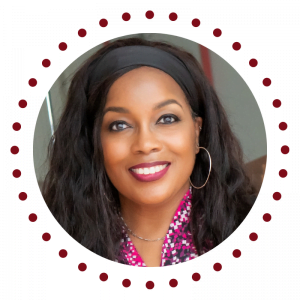
Want Karan to be Your Podcast Guest?
- Blended Workforces & the Gig Economy
- Critical Execution Tactics of High-performing Leaders
- Entrepreneurism & Leading Your Business
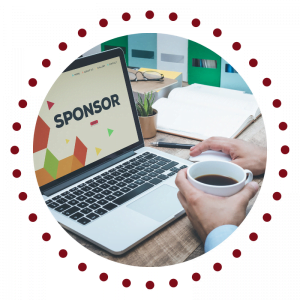
Want to be a Podcast Sponsor?
All sponsorships come with a featured spot on show notes pages.
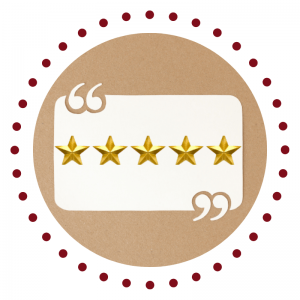
Like the Show? Please Leave a Review
If you like the show, it would mean the world to her if you left a quick review.
Your word is golden, so a HUGE thank you in advance!

#KeepInTouch
via our podcast alerts
Subscribe now to discover why thousands of monthly listeners who are passionate about doing their best work prioritize time each week to listen to the Blended Workforces @Work podcast.
#AboutSDL
#WhereToFindUs
MAILING
4480-H South Cobb Drive
PMB 219
Smyrna, GA 30080
PHYSICAL
2121 NewMarket Parkway
Ste. 108
Marietta, GA 30067
#ContactOptions
Customer Service Email:
service@shockinglydifferent.com
Call or Text:
770-384-1103
#Office Hours
MON-FRI
8:30 AM – 6:30 PM
Weekends By Appointment

